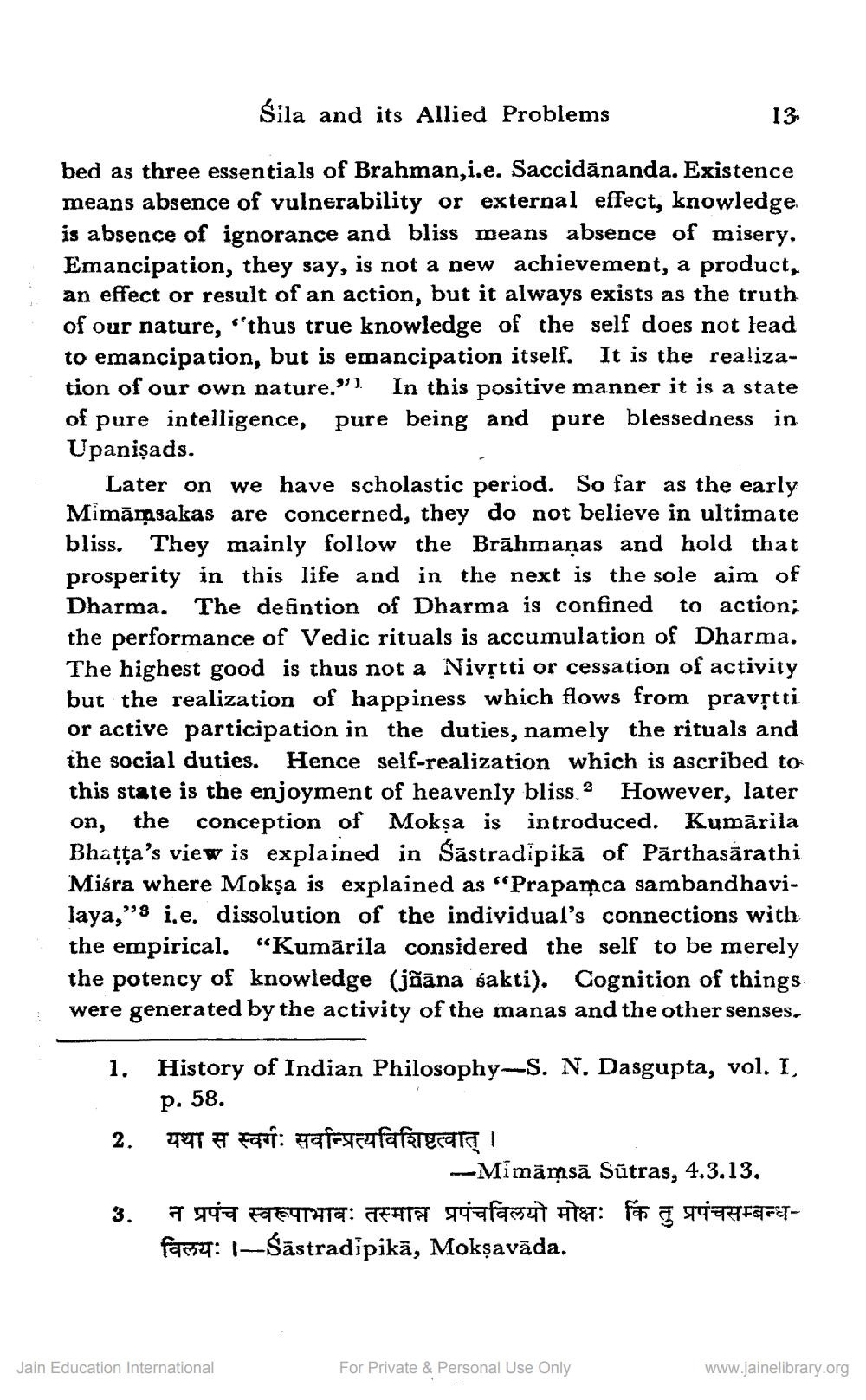________________
Sila and its Allied Problems
13
bed as three essentials of Brahman,i.e. Saccidānanda. Existence means absence of vulnerability or external effect, knowledge is absence of ignorance and bliss means absence of misery. Emancipation, they say, is not a new achievement, a product, an effect or result of an action, but it always exists as the truth of our nature, “thus true knowledge of the self does not lead to emancipation, but is emancipation itself. It is the realization of our own nature."). In this positive manner it is a state of pure intelligence, pure being and pure blessedness in Upanişads.
Later on we have scholastic period. So far as the early Mimāmsakas are concerned, they do not believe in ultimate bliss. They mainly follow the Brāhmaṇas and hold that prosperity in this life and in the next is the sole aim of Dharma. The defintion of Dharma is confined to action; the performance of Vedic rituals is accumulation of Dharma. The highest good is thus not a Nivștti or cessation of activity but the realization of happiness which flows from pravstti or active participation in the duties, namely the rituals and the social duties. Hence self-realization which is ascribed to this state is the enjoyment of heavenly bliss. However, later on, the conception of Mokṣa is introduced. Kumārila Bhatta's view is explained in Sāstradipikā of Pārthasārathi Miśra where Mokşa is explained as “Prapamca sambandhavilaya,"9 i.e. dissolution of the individual's connections with the empirical. “Kumārila considered the self to be merely the potency of knowledge (jõāna sakti). Cognition of things were generated by the activity of the manas and the other senses.
1. History of Indian Philosophy-S. N. Dasgupta, vol. I,
p. 58. 2. T F Fari: TafecufafeTECTII
---Mimāmsā Sūtras, 4.3.13. 3. न प्रपंच स्वरूपाभावः तस्मान्न प्रपंचविलयो मोक्षः किं तु प्रपंचसम्बन्ध
facet: 1–Šāstradipikā, Mokşavāda.
Jain Education International
For Private & Personal Use Only
www.jainelibrary.org




